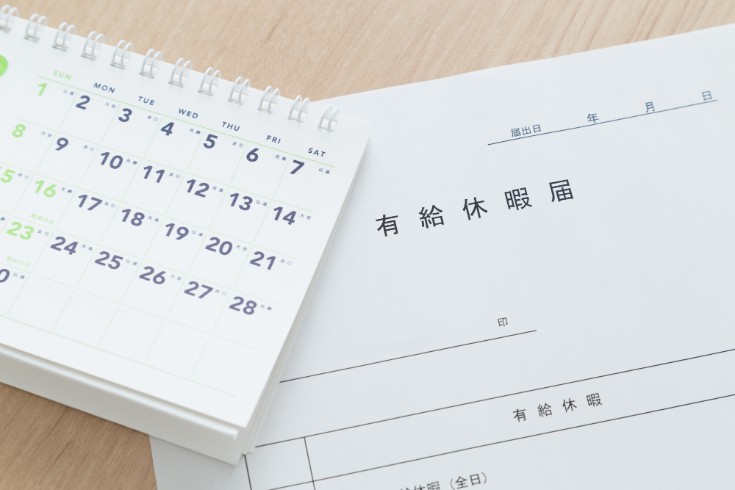Employment Visas for Hiring Foreign Nationals in Japan: Procedures and Requirements for the Top 5 Residency Statuses

In recent years, the presence of foreign talent in Japan’s labor market has been increasingly prominent. According to the Ministry of Health, Labour and Welfare of Japan, the number of foreigners working in Japan continues to reach new highs, and statistics from the Ministry of Justice of Japan also show a rising trend in the total number of foreign residents in the country. This reflects the current situation where many Japanese companies are striving to secure talented individuals across borders. However, the challenge for businesses is not merely finding talented personnel. Rather, it lies in accurately understanding and complying with Japan’s complex immigration control laws. Misunderstandings or errors in the application process for residency status (commonly referred to as “visas”) can lead to significant delays in the hiring process, legal risks, and missed opportunities in the global competition for talent. This article has been crafted as a comprehensive and practical guide to help business executives, legal department members, and human resource personnel grasp the overall legal procedures essential for employing foreigners in Japan. We will focus on the five main work-related residency statuses: “Engineer/Specialist in Humanities/International Services,” “Skilled Labor,” “Intra-company Transferee,” “Business Manager,” and “Designated Activities.” For each residency status, we will explain the legal requirements, conditions required of both applicants and accepting companies, and detailed steps of the application process, based on specific laws such as the Japanese “Immigration Control and Refugee Recognition Act” and related Ministry of Justice ordinances.
Understanding the Fundamental Procedure: Certificate of Eligibility in Japan
When employing a foreign national residing overseas to work in Japan, the standard procedure involves applying for a “Certificate of Eligibility” (COE). The COE is a document issued by the Japanese Minister of Justice, certifying that the foreign national meets the conditions for landing in Japan as stipulated in Article 7-2 of the “Immigration Control and Refugee Recognition Act.” Obtaining the COE accelerates the visa issuance process at Japanese embassies and consulates abroad, as well as the landing examination at airports in Japan.
The overall procedure is as follows: First, the accepting company in Japan prepares and submits the COE application on behalf of the prospective foreign employee. The application is submitted to the regional immigration bureau that has jurisdiction over the company’s location or the place where the foreign national plans to reside. Next, the Immigration Services Agency of Japan reviews the application, checking the applicant’s educational and employment background, as well as the stability and continuity of the accepting company’s business, to ensure they meet the criteria for the intended residency status. Once the application is approved after review, the COE is issued and sent to the accepting company in Japan. In recent years, it has become possible to receive the COE via email. The company then forwards the original COE or its electronic data to the individual abroad. The recipient then submits the COE, along with their passport and other necessary documents, to the Japanese embassy or consulate in their country to apply for a visa. The COE is valid for three months, during which the visa application must be made. Entry into Japan must occur within the validity period of the issued visa. This three-month validity period is crucial. Upon arrival at a Japanese airport, presenting the passport and visa, and submitting the COE, will result in the issuance of a residence card, officially starting the individual’s work activities in Japan.
The standard review period for the COE ranges from one to three months from application to issuance, but this can vary depending on the type of residency status, the size of the company, and the workload of the regional immigration bureau. The COE system can be interpreted as a deliberate design by the Japanese government to manage risk. By centralizing the core part of the review process with the Immigration Services Agency of Japan, which has specialized knowledge in evaluating Japanese laws and the reality of companies, the burden of review at consulates around the world is reduced, and consistency in decision-making is ensured. The role of consulates abroad is primarily limited to verifying the applicant’s identity and the authenticity of the COE, with the substantive permission decision already made. This mechanism means that the COE application is the biggest hurdle for companies, and once this stage is passed, the subsequent visa issuance proceeds with high certainty.
An In-Depth Analysis of the Five Key Work Visas Under Japanese Immigration Law
Technology, Humanities Knowledge, and International Services
This residency status is one of the most common and diverse work visas for professionals in Japan. According to the Immigration Control and Refugee Recognition Act (出入国管理及び難民認定法) of Japan, Annexed Table 1-II, this status targets activities engaged in natural science fields such as physical science, engineering, and other natural sciences (“Technology”), or tasks requiring knowledge in fields belonging to humanities sciences such as law, economics, sociology, and others (“Humanities Knowledge”), as well as services that require thought or sensitivity based on foreign cultures (“International Services”).
The criteria for landing permission to obtain this residency status are detailed in the Ministerial Ordinance that defines the criteria under Article 7, Paragraph 1, Item 2 of the Japanese Immigration Control and Refugee Recognition Act. For activities in the fields of “Technology” or “Humanities Knowledge,” applicants are generally required to have graduated from a university with a major in the relevant field, received an equivalent or higher education, or have over ten years of practical experience. However, there is a special exception for information technology engineers who have passed certain examinations designated by the Minister of Justice, which relaxes these requirements. In the field of “International Services” (e.g., translation, interpretation, marketing, international trade, etc.), a minimum of three years of practical experience is generally required. However, if the service content involves translation, interpretation, or language instruction, this three-year practical experience requirement is waived for university graduates. A common important requirement across all these fields is that the remuneration the applicant receives must be equal to or greater than the remuneration received by Japanese nationals engaged in the same work.
The documents required for the application process vary according to four “Categories” set based on the size and reliability of the accepting company. This category system was introduced by the Immigration Services Agency of Japan to streamline the review process. Category 1 includes companies listed on the Japanese stock exchange, Category 2 includes organizations or individuals with a source tax amount of salary income of 10 million yen or more for the previous year, Category 3 includes organizations or individuals (excluding Category 2) who have submitted the total table of statutory documents for the previous year, and Category 4 includes newly established companies, among others.
The documents to be submitted include the “Certificate of Eligibility for Status of Residence” (with a photo attached) and a return envelope, common to all categories, as well as documents proving the company’s category (e.g., a copy of the quarterly report for Category 1), certificates of graduation or certificates of employment to prove the applicant’s educational and employment history, and the accepting company’s certificate of registered matters or recent financial statements (especially for Categories 3 and 4). In addition, in accordance with Article 15 of the Japanese Labor Standards Act, a copy of the employment contract or notification of working conditions that clearly states job content, salary, and employment period is essential. Application forms are available on the website of the Immigration Services Agency, and applications are made to the regional immigration bureau that has jurisdiction over the location of the company.
Skills
The “Skills” residence status in Japan targets professionals with specialized skills in certain industry sectors, prioritizing hands-on expertise over academic qualifications. Examples of specific occupations include foreign cuisine chefs, sports coaches, aircraft pilots, and craftsmen in precious metals processing. This residence status differs from the “Specified Skills” visa, which is designed to address labor shortages in certain industries by accepting a broader workforce. The distinctive feature of the “Skills” visa is the requirement for a high level of expertise.
The core criterion for landing permission is not educational background but extensive practical experience. Under Japanese Ministry of Justice ordinances, the necessary years of practical experience are specifically defined for each occupation. For instance, foreign cuisine chefs need over ten years of practical experience, including time spent at relevant educational institutions. Sports coaches must have at least three years of practical experience or experience participating in international competitions such as the Olympics or World Championships as athletes. Similarly, sommeliers and aircraft pilots are required to have at least five years of practical experience or specific flight hours and qualifications. Like other work qualifications, receiving compensation equal to or greater than what a Japanese national would receive for the same work is a mandatory condition.
The application process follows the standard flow for issuing a Certificate of Eligibility (COE). The documentation submitted must objectively prove the applicant’s extensive practical experience. Important evidence includes certificates of employment issued by past employers detailing the position, specific job responsibilities, and duration of employment. The application form “Application for Certificate of Eligibility (Skills)” is available on the Immigration Services Agency of Japan’s website, and applications should be submitted to the regional immigration bureau with jurisdiction over the area.
Intra-Company Transfers in Japan
This residency status is specialized for employees working at foreign business establishments who are transferred to a related company in Japan, such as the head office, branch, or subsidiary, to engage in business activities for a certain period. The activities conducted in Japan must fall within the scope of work permitted under the ‘Engineer/Specialist in Humanities/International Services’ residency status.
The criteria for landing permission have clear requirements for both the applicant and the company. For the applicant, it is necessary to have been continuously engaged in work corresponding to ‘Engineer/Specialist in Humanities/International Services’ at the overseas business establishment immediately before the transfer for one year or more. For the company, there must be a clear capital relationship between the transferring and receiving business establishments, such as a parent-subsidiary relationship or head office-branch relationship. Regarding compensation, it is also required that the remuneration be equal to or greater than what a Japanese person would receive for the same work.
The ‘Intra-Company Transfer’ residency status is an important means for global companies to strategically position their talent. Notably, the usual educational requirement of a university degree for ‘Engineer/Specialist in Humanities/International Services’ is not explicitly stated in the criteria for this status. Instead, emphasis is placed on more than one year of work experience at the transferring establishment. This allows companies to transfer to Japan those excellent talents who may not have academic qualifications but have accumulated years of experience within the company and possess high expertise. In other words, this system values in-house achievements and experience over external academic qualifications, making it an essential tool for companies that want to develop talent internally and utilize their capabilities across borders.
The application procedure uses the standard process for issuing a Certificate of Eligibility (COE) and the aforementioned corporate category system. The core of the required documents includes proof of the capital relationship between the transferring and receiving establishments (e.g., documents showing the investment relationship), a certificate of employment proving the applicant’s work experience of more than one year at the transferring establishment, and the transfer order or official notice issued by the company. The application form ‘Application for Certificate of Eligibility (Intra-Company Transfer)’ can be obtained from the Immigration Services Agency of Japan’s website and submitted to the regional immigration bureau with jurisdiction.
Business Management
The “Business Management” visa status is targeted at foreign nationals who engage in the management of trade or other business activities, or who are involved in the management of such businesses in Japan. This includes corporate representatives, directors, and managers.
The criteria for landing permission for this visa status are particularly strict compared to other work visas. According to the Japanese Ministry of Justice Ordinance, first and foremost, a physical business office must be secured within Japan. Virtual offices or mere residential addresses are not generally accepted. Next, regarding the scale of the business, one of the following requirements must be met: either employing two or more full-time staff residing in Japan, other than those engaged in management, or having a capital or total investment amount of 5 million yen or more. Furthermore, if the applicant is not an investor or business owner but will be engaged as a manager, more than three years of experience in business management (including periods of study in management-related subjects at graduate school) is required. As for remuneration, it must be equivalent to or exceed the amount that a Japanese national would receive for a comparable position.
The application procedure for the Certificate of Eligibility (COE) is standard, but the required documents are extensive. In addition to the applicant’s personal documents, a detailed business plan demonstrating the specificity and feasibility of the business, documents proving an investment of 5 million yen or more (e.g., bank account transaction details confirming the payment of capital), the lease agreement for the business premises, the company’s registry certificate, and if employing two or more full-time staff, their employment contracts and copies of their residence cards are necessary to prove the reality of the business. The application form “Application for Certificate of Eligibility (Business Management)” is available on the Immigration Services Agency of Japan’s website, and applications should be submitted to the regional immigration bureau that has jurisdiction over the company’s location.
Designated Activities Under Japanese Immigration Law
“Designated Activities” is a comprehensive and special category established for foreigners engaging in activities that do not fall under any other visa status defined by Japan’s “Immigration Control and Refugee Recognition Act.” Unlike other statuses defined in the Act’s appendices, this status is granted by the Minister of Justice, who specifies the activities for each individual foreign national. The status is broadly divided into activities predetermined by the Ministry of Justice’s public notices (Notified Designated Activities) and those not listed in the notices but permitted considering individual circumstances (Non-Notified Designated Activities). It is important to note that this status is highly fluid, with new activities being added in response to changes in socio-economic conditions.
Key “Designated Activities” related to corporate activities include:
- Job-Hunting for Graduates of Japanese Institutions: This status allows international students who have graduated from Japanese universities or vocational schools to remain in Japan to continue their job search. The usual period of stay is six months, with a one-time extension of six months possible (up to a maximum of one year). A recommendation from the university attended is among the requirements to obtain this status.
- Internships: This is granted to students enrolled in foreign universities who participate in internships at Japanese companies as part of their educational curriculum. Requirements include a contract between the university and the host company, and the internship period is typically within one year and does not exceed half the duration of the academic program at the home university.
- Working Holiday: This program allows young people from countries and regions that have agreements with Japan to stay in Japan primarily for vacation, with incidental employment to supplement their travel funds. There is usually an age limit of 18 to 30 years.
- Digital Nomad: A category established in 2024, targeting foreigners who work remotely without being tied to a specific location while earning a high income. Main requirements include an annual income of over 10 million yen, eligibility for visa waiver programs, nationality from a country or region with which Japan has a tax treaty, and enrollment in private medical insurance. The period of stay is six months, with no extensions allowed.
The application procedures for these activities vary significantly depending on the content. For example, digital nomads and internships typically involve calling from overseas (Certificate of Eligibility application), while job-hunting after university graduation is commonly done by changing the visa status of international students already in Japan. Required documents also differ for each activity, such as a letter of recommendation from the university for job-hunting, a contract between the university and the company for internships, and proof of income and insurance enrollment for digital nomads. Information on applications can be found on the Immigration Services Agency of Japan’s website, on the page for “Designated Activities” visa status.
Comparative Overview of Key Working Visas in Japan
The five main residence statuses we have discussed each have different purposes and requirements. To enable HR managers and business executives to quickly determine the most suitable residence status for the foreign talent they are considering hiring, based on their background and intended job duties, we present a comparative chart of their personalityistics below.
| Residence Status | Main Purpose | Educational Requirements | Professional Experience Requirements | Main Requirements for Accepting Companies |
|---|---|---|---|---|
| Engineer/Specialist in Humanities/International Services | Employment as a professional | Generally, a university degree or higher | 10 years or more (or equivalent educational background). For international services, 3 years or more. | Stability and continuity of the business, relevance of the job content |
| Skilled Labor | Work requiring specialized skills | Not required | Varies by job type, generally 3 to 10 years or more | Proven business performance in the specialized field |
| Intra-company Transferee | Employee transfer between affiliated companies | Not required | Continuous employment of 1 year or more at the transferring company | Capital relationship with the transferring company |
| Business Manager | Management of business operations | Not required | 3 years or more for managerial positions | Capital investment of 5 million yen or more, securing of business premises |
| Designated Activities | Activities individually designated by the Minister of Justice | Depends on the activity | Depends on the activity | Depends on the activity |
As can be seen from this comparison, choosing the right residence status is not merely a clerical procedure but is deeply connected to the recruitment strategy itself. For example, if you want to hire an excellent software developer with 15 years of practical experience but without a university degree, the educational requirements for the “Engineer/Specialist in Humanities/International Services” status may not be met, but an application could be possible based on professional experience. If the talent has been employed for over a year at a group company, the “Intra-company Transferee” option, which may offer a more streamlined process, also becomes a viable choice. Thus, analyzing a candidate’s background in advance and selecting the residence status with the highest likelihood of approval is crucial for a smooth recruitment process. Involvement of the HR and legal departments from the early stages of recruitment and devising an optimal visa strategy is key not only for streamlining administrative procedures but also for securing a competitive edge in the global talent acquisition race.
Key Legal Obligations for Companies Employing Foreign Nationals in Japan
Companies in Japan that employ foreign nationals must comply not only with the procedures under the Immigration Control Act but also with obligations based on Japanese labor-related laws. Particularly, the following two points are extremely important as they directly relate to the application and maintenance of residency status.
Obligation to Clarify Employment Conditions
Article 15 of the Japanese Labor Standards Act obligates employers to explicitly state in writing the wages, working hours, and other principal employment conditions when concluding a labor contract with an employee. This document is commonly referred to as the “Employment Conditions Notification,” and it is an essential document for residency status applications, as it proves the existence of a valid employment relationship and details regarding remuneration and job responsibilities. The “absolute explicit items” that must be stated in writing include the duration of the labor contract, the place of work and the duties to be performed, starting and ending times, days off and holidays, methods of determining and paying wages, and matters concerning resignation.
Obligation to Enroll in Social and Labor Insurance
Legally, foreign employees who meet the same enrollment requirements as Japanese employees must be enrolled in Japan’s social insurance and labor insurance systems. This includes health insurance, welfare pension insurance, employment insurance, and workers’ accident compensation insurance (workers’ compensation insurance). Complying with the obligation to enroll in these insurances is not merely a labor law issue. In recent years, the Immigration Services Agency of Japan has been scrutinizing the enrollment status in social insurance when reviewing applications for renewal of residency periods. If a company fails to properly enroll its employees in insurance, it could become a reason for denial of residency period renewal, leading to the direct risk of the company being unable to retain its valuable foreign talent.
Conclusion
The proper implementation of the Japanese work visa system is a complex process that requires specialized legal knowledge and careful strategic planning. Understanding the requirements for each residency status accurately, preparing a vast amount of documentation without errors, and constantly adapting to legal amendments can be a significant burden for many companies. Even minor procedural mistakes can carry the risk of derailing an entire recruitment plan. Monolith Law Office has a proven track record of providing a wide range of legal services to numerous domestic and international clients, from applying for work visas as explained in this article to managing residency status thereafter. Our firm’s strength lies not only in our thorough understanding of Japanese law but also in the fact that we have multiple English-speaking attorneys with foreign legal qualifications on our team. Based on this deep understanding of both Japanese law and international business practices, we are able to offer smooth and comprehensive support for the challenges faced by our client companies. Companies that are facing challenges with the employment of foreigners or are planning to do so are encouraged to consult with our team of experts at Monolith Law Office.
Category: General Corporate





















